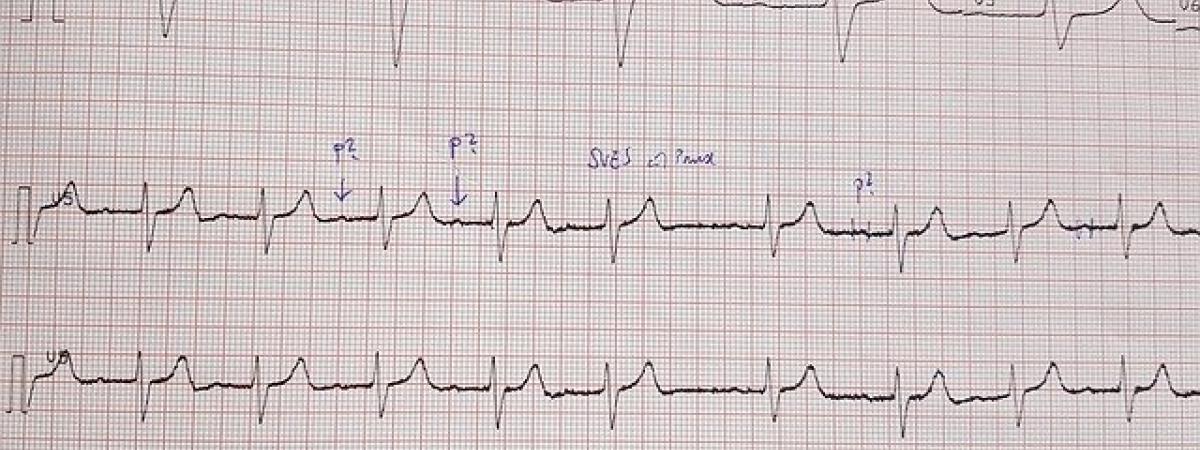What you need to know about heart palpitations

That sudden pounding or fluttering in your chest can be alarming, but fear may only make the palpitations worse—here's what they really mean.
Panic and perspective
Having your attention drawn to your heartbeat can be alarming but palpitations are mostly harmless. It’s normal for your heart to race when you’re excited or overdoing things, or for it to skip a beat once in a while.
Rather than representing an underlying heart condition, it’s more likely that your palpitations are caused by lifestyle factors such as stress, caffeine, alcohol and smoking, and simple lifestyle changes can help reduce them.
Palpitations can themselves make you feel light-headed, sweaty or breathless which only adds to the feelings of fear. With these symptoms, it’s worth seeing a doctor.
Problems
When palpitations persist even in the absence of exertion, excitement, stresses, strains or stimulants, they may be a sign of a heart condition known as atrial fibrillation (AF), the most common abnormal heart rhythm, affecting more than 33 million people worldwide.
For some people, the heart rate may be difficult to control in AF and complications can occur. For older people and those with a history of stroke, diabetes, high blood pressure or heart failure there is a risk of stroke, since little blood clots can form in the upper chambers of the heart as they beat irregularly (looking like bags of wriggling worms); the heart can also weaken and heart failure may develop.
Yet smaller blood clots in AF may lead to dementia. In one study in the European Heart Journal, 7428 people were tested for dementia over 15 years. Cognitive decline (measured through maths problems and word memory) was faster in those with the irregular heartbeat.
Picturing palpitations
Sitting on the upper right side of the heart is an amazing cluster of cells called the sinoatrial node, about 8mm long and 2mm thick. These “pacemaker” cells keep sending out electrical impulses, more than once a second, to make the rest of the heart contract and pump out blood. Even when the heart is removed from the body for transplant, these timekeeping cells carry on working.
To picture what’s often going on in palpitations, it helps to visualise the sinoatrial node as an orchestral conductor with the muscle fibres in the heart being like musicians contracting in time to its beat. In his book, The Matter of the Heart, author Thomas Morris describes how, in palpitations, it is as though the orchestra has lost concentration and is improvising wildly, with different members (representing different parts of the heart) each vying to take the baton. Instead of playing as an ensemble, “the members of the orchestra are each doing their own thing, resulting in a deafening cacophony, while the conductor’s increasingly desperate gestures from the rostrum are ignored”.
Putting it right
Thomas Morris goes on to describe how electricity can be used to help restore a regular heartbeat, whether through a pacemaker (which he likens to a metronome being placed on the conductor’s stand and its “tick” now setting the beat), or through electric shock treatment (likened to a firework being set off in the auditorium, helping everyone to concentrate on the conductor again).
Medication may be prescribed to prevent a stroke and to control the heart rate or rhythm, whilst relaxing more, reducing your weight, stopping smoking and avoiding stimulants (such as caffeine) is also important.
In one intriguing study in the European Heart Journal, 85,494 people were followed up for an average of ten years. It was shown that working long hours (more than 55 hours per week) was associated with an increased risk of AF (when compared with working standard hours), even when factors such as obesity, alcohol intake and high blood pressure were taken into account. According to the British Heart Foundation, more research is needed to determine whether the long working hours are themselves to blame, or whether it is the type of work involved, or even some other, unmeasured factor.
People’s stories
With the right treatment for your heart rhythm problem, you can still follow new dreams and live life to the fullest: barrister Andrew McDonald piloted a Spitfire and Ruth Whiteley became a contestant on the TV show The Apprentice, helping them to restore their independence and regain their confidence. “Don’t give up. You can achieve far more than you think,” says Andrew.
